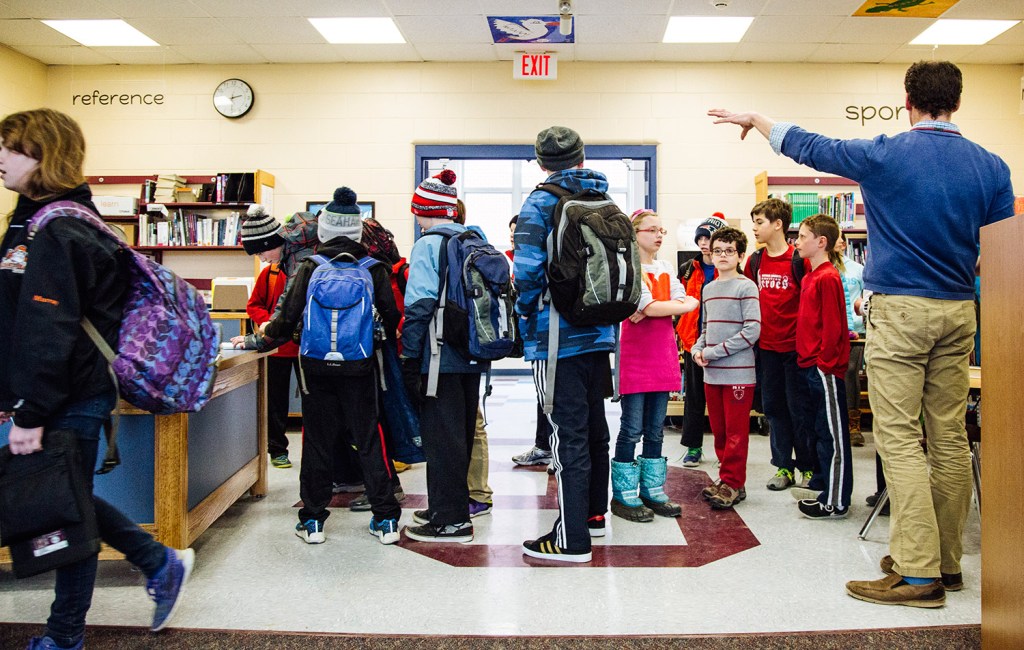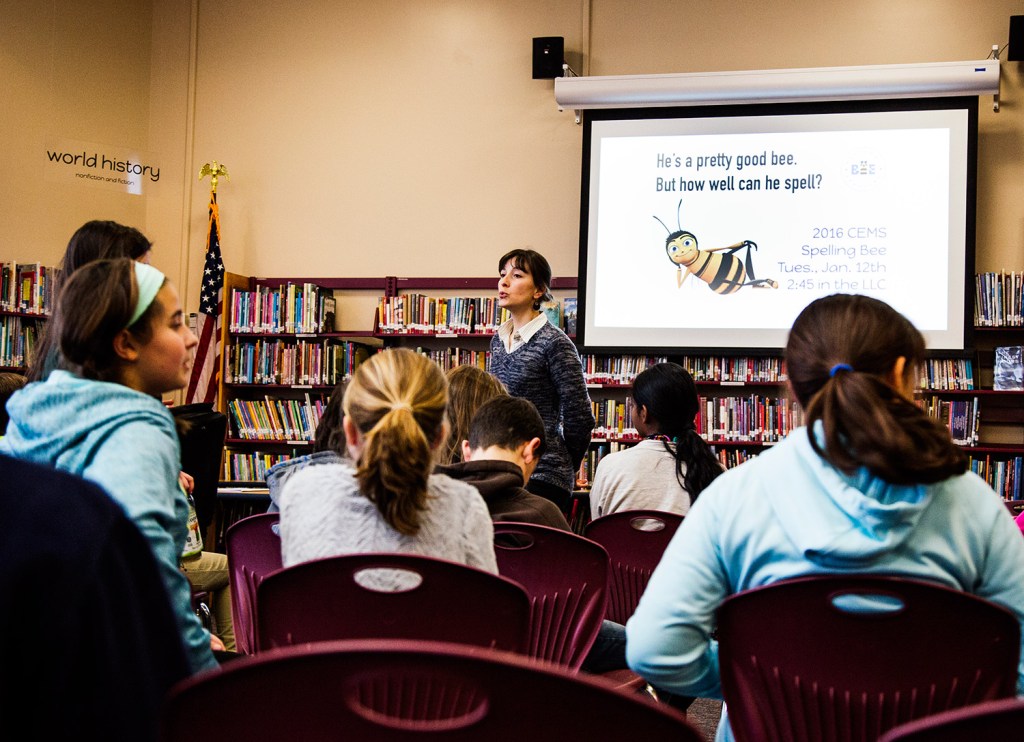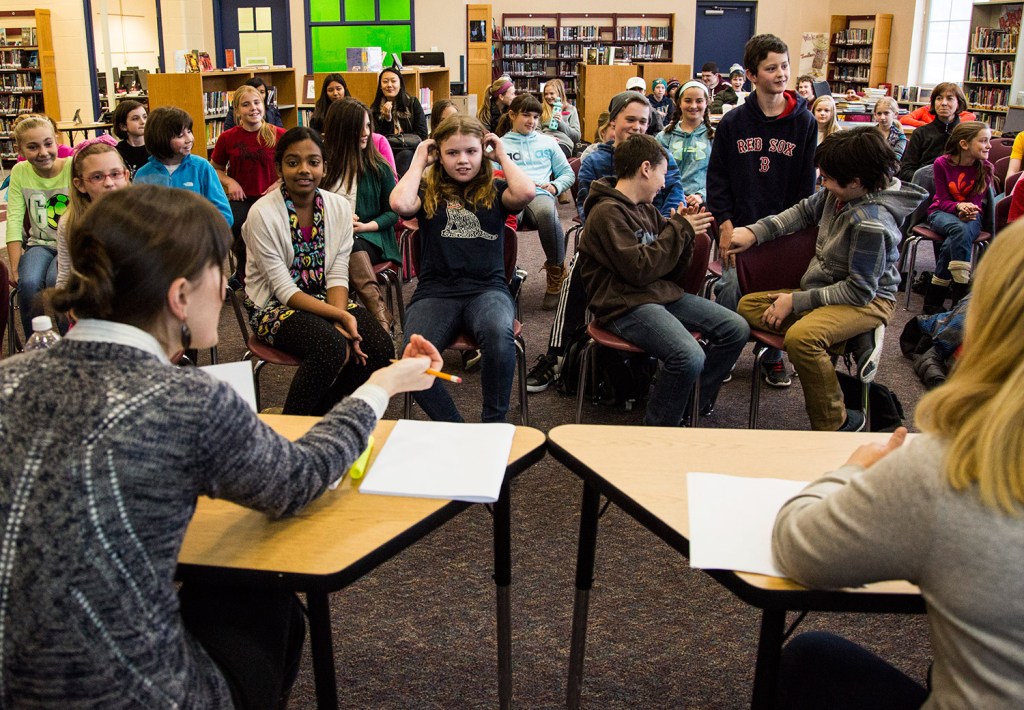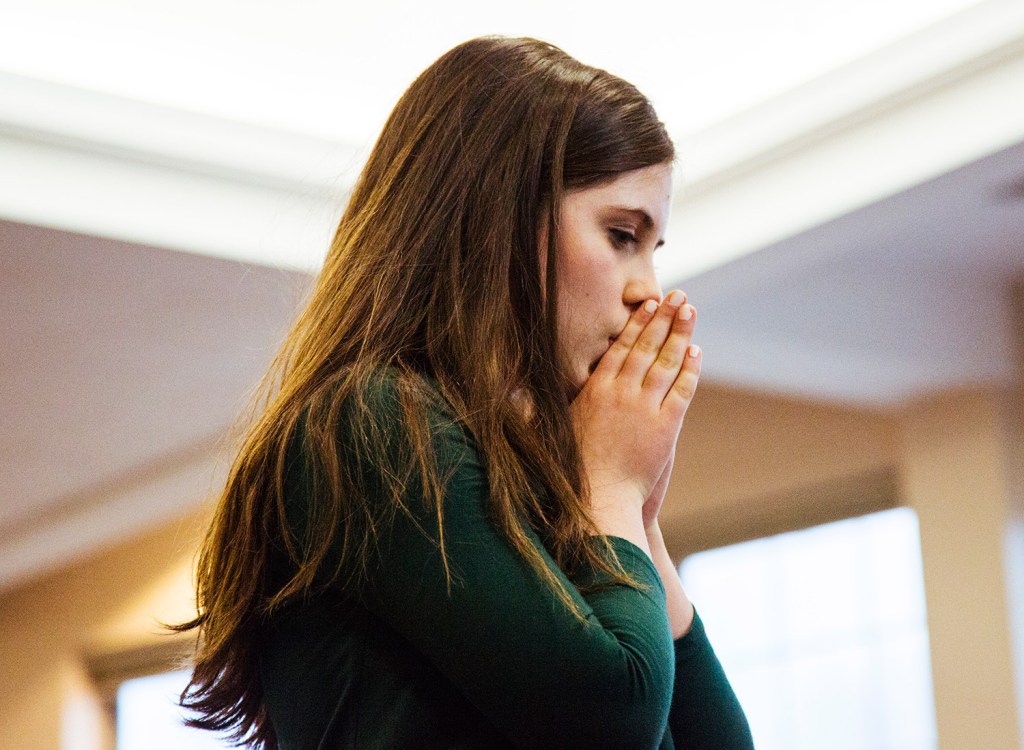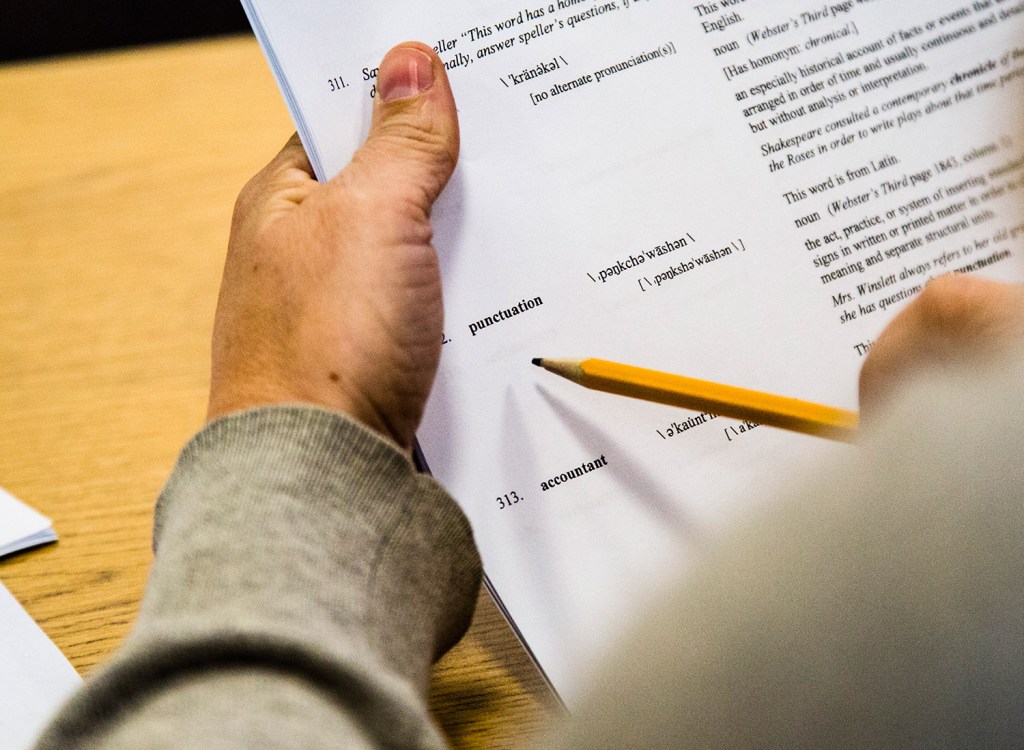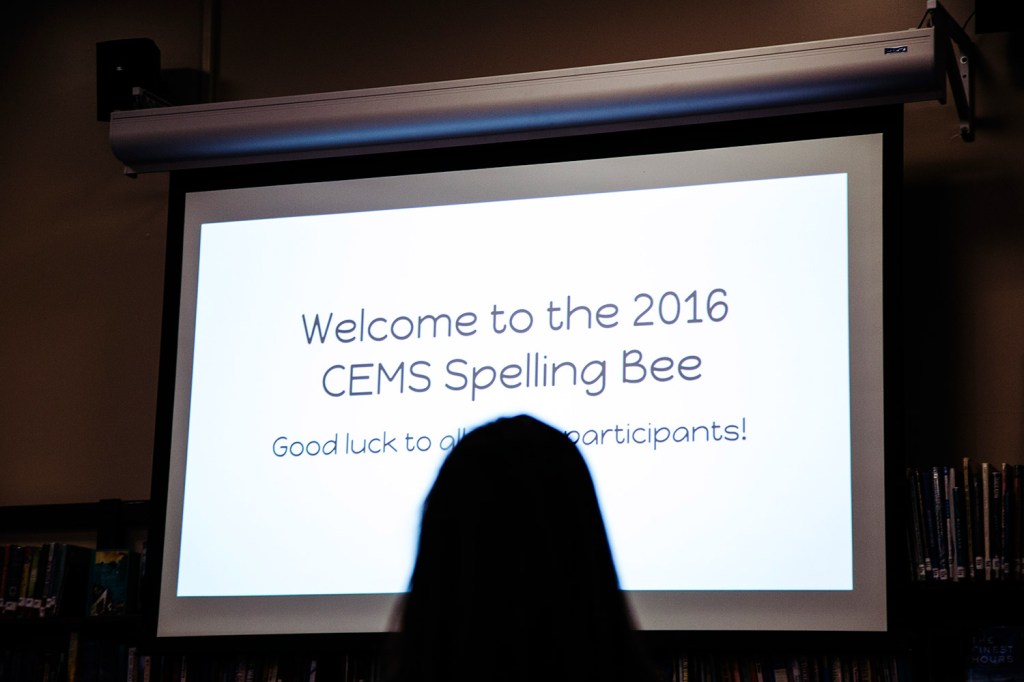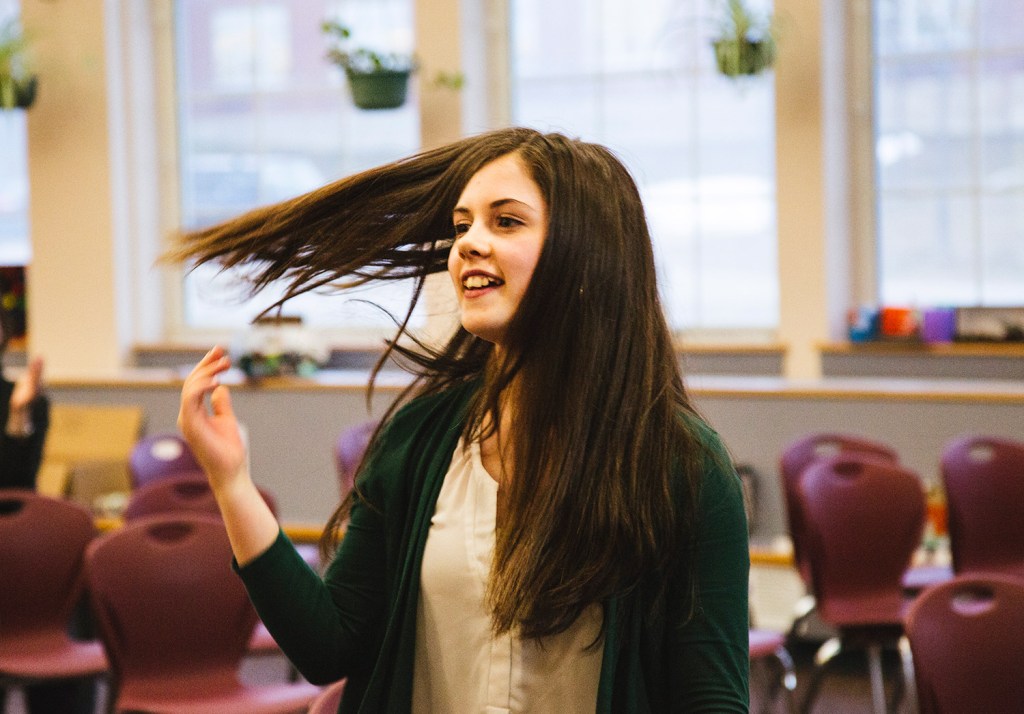CAPE ELIZABETH — It was down to a dozen students, when the boy standing next to Raina Sparks began to spell “deciduous.”
“D-e-c-i-g —”
Raina scrunched her face. He finished the word, then headed to the back of the school library, where other eliminated contestants were offering hugs and high-fives. Raina hopped up from her chair.
“Arpeggio,” one of the judges said from behind a packet of paper at a desk at the front of the room. She knew the word from studying music.
“Arpeggio. A-r-p-e-g-g-i-o,” she said, then smiled, flipped her hair behind her shoulder and sat back down.
The judges reminded her to say the word again at the end, so they would know she was finished spelling.
 The protocol wasn’t new to Raina, 13, who won the Cape Elizabeth Middle School spelling bee last year as a seventh-grader, then went on to the county bee, where she placed 11th, eliminated by “apocalypse.”
The protocol wasn’t new to Raina, 13, who won the Cape Elizabeth Middle School spelling bee last year as a seventh-grader, then went on to the county bee, where she placed 11th, eliminated by “apocalypse.”
Because the top two spellers from each school go to the countywide competition, she was joined by Lila Gaudrault, who ended up coming in second in the state.
But Lila decided not to compete this year, making Raina the obvious front-runner for the school bee.
That’s the only one she cares about.
“I think people who go on to state and nationals devote their life to spelling,” she said.
Raina, who plays field hockey, is on the debate team and was cast as Juliet in her Shakespeare theater group, has no interest in putting that kind of time into studying.
“Because Netflix,” she said.
In the past couple of weeks, she’s been going through the 450-word study list with her mom, checking off the ones she knows and cycling back through the others until she gets them all right.
Her studying was stopped slightly short by her Maltipoo, Shirley, who knocked a cup of tea onto the list a couple days before the competition.
At that point there were only two words she kept getting stuck on — “parable” and “ostensible” — so, the night before the bee she wrote them on a piece of paper and taped it to her forearm.
The next morning she woke up at 4 a.m., an hour before her alarm was set to go off so she would have enough time to straighten her hair before school.
Lying in bed, she started spelling whatever words came into her head.
Although Raina comes off as confident, she insists she’s a nervous person.
She remembers after her parents told her they were moving to Maine from their home in Berkeley, California, she’d wake up every day thinking she was sick. Six years later, her nervousness has taken on a different form.
Even though she hasn’t started high school yet, she already has her eye on graduating valedictorian, or at least in the top 10 percent of her class. She’s on the right track, considering her worst-ever trimester grade was an A- in math in her first year of middle school.
When the time comes, she is going to apply to three Ivy League colleges, three liberal arts schools and one back-up, she said. She plans to study law and would like to work as an attorney, a diplomat or a politician.
But last Tuesday, there was a more immediate goal on hand: taking first place in the school spelling bee.
“Honestly, I like winning things,” she said.
After the fourth round, only six students were left, and the judges had them sit lined up in the first row of chairs set up in the library.
With dark jeans tucked into brown boots and hoop earrings, Raina, who talks with her hands when they’re not running through her hair, looked like a full-blown teenager compared to some of the other contestants, as young as fifth-graders. One girl wore a headband with a bow and another was dressed head-to-toe in pink.
This round would be different from the last ones, a judge told them. The words would not come from the study list.
Panic came over Raina, and she raised her hand.
“Do we go back to the study list words at all?” she asked, laughing nervously.
The answer was no.
The first girl, who grabbed the bottom of her sweater as she spelled, accidentally added an “s” to “unicycle,” then a boy cracking his knuckles was flummoxed by “frolicsome.”
“Skeleton” was Raina’s word.
“Can I have a definition, please?” she said, bouncing her shoulders. She didn’t need one.
After the other contestants were eliminated by “mechanics” and “retrieval,” the competition came down to Raina and seventh-grader Tyler Rodenberger, whose hands never left the front pouch of his hooded Red Sox sweatshirt.
They breezed through the next round, she with “heirloom,” then he with “literature.”
After correctly spelling “applicable,” Raina was warned again about repeating the word once she was finished.
“I’m sorry, I keep forgetting,” she said.
Next it was Tyler’s turn, and the word was “chronicle.”
“C-h-r-o-n-i-c-a-l,” he said.
That was wrong, the judge told him, but the bee wasn’t over.
Raina would have to spell the next word correctly to win. The word was “punctuation.”
“Could I have the language of origin, please?” she asked the judges. Latin, she was told.
“Like half the English language is in Latin,” she said, laughing.
Her hands held together, she repeated the word.
“Punctuation. P-u-n-c-t-u-a-t-i-o-n,” she said, then opened her mouth in a wide smile and held her palms out toward the judges. They sat in silence, until she realized what was wrong.
“Punctuation!” she said and flipped back her hair.
Send questions/comments to the editors.


